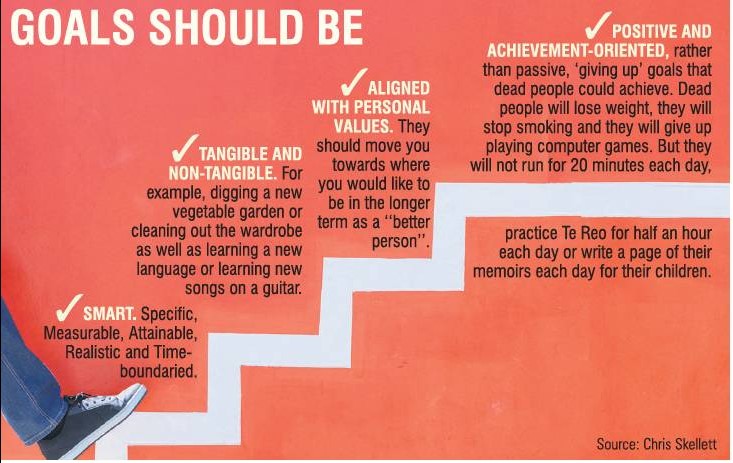
It is Day Three of the four-week, nationwide, Covid-19 lockdown. By now your natural tendency towards either pleasure or achievement will be making itself known.
Did you wake with a smile at the prospect of another day with no ‘‘to do list’’and the freedom to ‘‘just hang’’ with those in your household?
Did you stand brooding in the kitchen, already a bomb site of unwashed dishes, breakfasting on the dregs of last night’s chocolate self-saucing pudding as you wondered how bad it could get?
Did you pick up paper and pen to revise yesterday’s job list, taking pleasure in crossing out completed tasks and adding items that would give a sense of purpose and accomplishment to the next 12 hours?
As we peer into the tunnel of, at least, a further 25 days of self-isolation, not thinking about how we are going to spend those myriad hours is likely to see it all come stickily unstuck. A plan, however, conceived and executed, could add a bright silver lining to an otherwise dark and cloudy outlook.
That is the advice of retired Dunedin clinical psychologist Chris Skellett.
Skellett, the author of several books, including When Happiness is not Enough: Balancing Pleasure and Achievement in your Life, says that in times of uncertainty it is too easy to sit back and become passive, waiting for the dramas to be managed by others.
‘‘But simply brooding on personal misfortune or excessively self-soothing with indulgent pleasures during self-isolation is a wasted opportunity,’’ says Skellett who, until this week, divided his time between Otago and Marlborough.
Not that there is anything wrong with a tendency towards ‘‘being’’ rather than ‘‘doing’’. Both are needed. The key is balance, Skellett explains.

He suggests people view the lockdown as a gift; a rare chance to spend a month focusing exclusively on themselves and their loved ones without the distractions of everyday life.
‘‘We can all take this opportunity to reflect on what is important to us, to re-connect with family and to review the way that we live our lives. It is a wonderful opportunity to set meaningful personal goals. It should be grasped with both hands.’’
There is no reason to be bored or frustrated while stuck at home, Skellett says.
‘‘By scheduling specific times to work on specific goals, we bring structure to our day. By recording our daily progress towards these goals,we generate momentum.’’
He gives the example of a friend who rowed his way around New Zealand without leaving his living room.
‘‘He simply recorded the distance rowed on a map beside his rowing machine.
‘‘The last and hardest part, from Oamaru to Dunedin, became the easiest part as he triumphantly rowed his way up Otago harbour — in his dreams.’’
Skellett says goals should be specific, realistic, positive and aligned with personal values.
For overall wellbeing, it is a good idea to make sure goals include physical, social and creative activities.
Physically, people can, for example, set up a home gym or use their daily trip outside to develop a running or walking programme. There are also plenty of online fitness programmes.
Social opportunities are obviously limited, but people can still connect by phone or social media platforms.
‘‘We can catch up with those email contacts who have gently slipped too far away from us, we can phone dear friends and talk at length and we can write to all manner of people to share how important our relationships with them are.’’
Creatively, Skellett suggests we ask ourselves what activities we used to enjoy
but have let slip over recent years.
‘‘We can pick up those woodworking tools or those baking trays and get busy and creative again.
‘‘Alternatively, we can ask ourselves what we’re not good at — singing, dancing, poetry — and decide to see how good we can get.’’
It is also a great idea to consider goal-setting with others who are sharing your ‘‘bubble’’.
Four weeks, or more, of lockdown will make it easy to feel irritated and stressed by living closely with others, ‘‘even if they are your soul mates’’, Skellett says.
But now is an ideal time to sit down and set shared goals, he says.
Talk more, plan more and schedule more shared, pleasurable activities together. This will help you cope with the inevitable stresses and changes of the ‘‘new normal’’.
‘‘Let’s establish a clear structure to our daily lives that takes full advantage of this golden opportunity that we have all been given to work on ourselves.
‘‘To relax, to refresh, and to refocus on how we would like our lives to be.’’
Comments
Very good advice Chris, and yes, we can freely choose to either wollow in dispair and doubt, or we can turn our thoughts and efforts to more productive things.
For my family, scraping down the house, painting, waterblasting the paths and fences, cleaning out the gutters, fix the letterbox and the side gate, some creative sewing, woodwork, cooking, car maintainance, lots of reading and overdue gardening. The list just goes on.......oh, and the dog is loving the extra exercise!
What we do take from this though, is how peaceful and surreal the city is at this time, and the friendliness of all those we encounter....from more than 2 meters away. My partner is a health worker, so we have that constant concern about exposure to the virus during some very long shifts. We have a very stringent plan for 're-entry into our bubble'. The only concern other than food.....do I still have a job? Take care everyone :) Maybe we'll see the experiences of others posted here?













